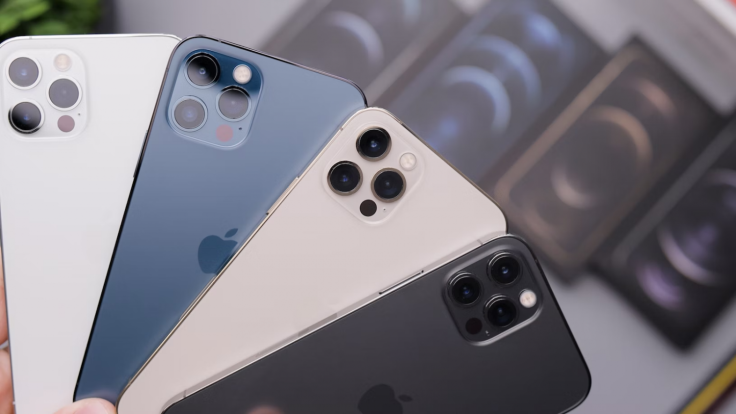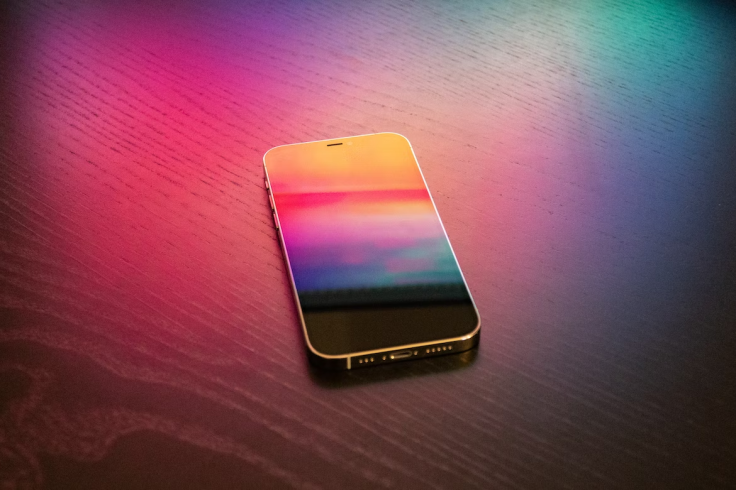
Apple stands out as a beacon of privacy protection. While other companies are keen to gather and utilize users' personal data, this company has taken significant steps to safeguard it. Their anti-tracking measures on the iPhone are an impressive response that makes data trackers think twice about operating with impunity. Apple has made it a top priority to empower its users by giving them control over their data. However, even with all these measures in place, iPhones remain vulnerable to cyberattacks. Fear not, though, as this blog post will outline 5 simple tips that you can follow to protect iPhone from cybersecurity breaches.
1. Use Encryption for Backup
Protecting our personal data is becoming more and more crucial in today's society, and with iTunes not backing up certain information, it's important to take matters into our own hands. According to surveys, 37% of iPhone users worry about their data getting tracked. By encrypting our backups, we can ensure that our saved passwords, Wi-Fi configuration, site history, and other data are safe and sound. Just connect your device to your computer, fire up iTunes, select the device, and check the box for Encrypt iPhone Backup. Alternatively, if you prefer to use iCloud, all backups are automatically encrypted. Simply head to your settings and turn on the switch next to iCloud backup, and tap on Back Up Now. You can also convert any picture to PDF and use a password to protect it. In addition, you can get a PDF from photo and share it with your colleagues while keeping it secure.
Besides, enabling the "Find My iPhone" allows you to track your lost device and safeguard your data. The Activation Lock feature is particularly noteworthy, as it ensures that no one can access or sell your device without your approval. The feature is designed to prevent unauthorized use, meaning that unless someone has your Apple ID password, they won't be able to reactivate or erase any of your content.
2. Digitize Your Documents
Our smartphones can reveal a wealth of personal information that we would rather remain private. But fear not, as there are strategies you can implement to maximize your iPhone security. One tip is to only scan important documents with reputable apps, such as PDF Scanner App that was released by a well-established company. You can download on the Apple App Store and install the app on your device. Besides this scanner app, you can use PDF encryption with complex keys to increase the security of digital documents. In addition, you can use digital signatures. They are cryptographically bound to the signed document and can be easily verified. Utilizing digital certificates obtained from a trusted third party for e-signatures ensures that documents are virtually impossible to spoof, ensuring the legitimacy of important files.
With PDF envelopes, individuals can easily and securely package multiple documents into a single file. After converting a picture to PDF and encrypting the envelope, you can ensure that only authorized individuals have access to the contents. You can also convert PDF to Word free of charge and add it to the envelope. Additionally, by certifying the envelope, you can provide proof of the document's origin, protecting against any disputes that may arise. Once authorized recipients receive the envelope, accessing the contents is a breeze - simply open the file and extract the documents within. Remember that you can also create a PDF from photo to protect your valuable data.
3. Delete Your History
It is important to clear your browsing history and cookies from time to time. It will delete web addresses you've visited and shortcuts to those pages, as well as address bar predictions for those websites. Additionally, clearing out your cache can help enhance the performance of your browser. Taking these simple steps contributes to improving security and can save space on your iPhone by removing data saved as a result of your browsing. Although not strictly necessary, clearing your history and cookies can remedy certain browsing issues and ensure a smooth and secure web experience.
4. Pay Attention to Location Settings
As 2% of applications in the Apple Store are suspected to be scams, allowing apps to access your location can potentially compromise your personal data. Fortunately, the latest versions of iOS make it easier to manage Location settings. By navigating to Settings ⟶ Privacy ⟶ Location Services, you can choose to allow apps access to your location only when it is necessary.

5. Use Custom Settings
Many users have been asking: "How secure are iPhones?" While these devices were quite safe, with iOS 12, Apple has further enhanced users' control over their data. The update includes a host of features that allow for greater customization based on individual needs. You can easily convert PDF to Word free of charge and perform other tasks. Users can choose to disallow in-app purchases and other actions providing greater control over their devices. Furthermore, users can prevent Siri from using explicit language and preset their device to automatically wipe out all data after 10 failed passcode attempts.
There are many steps you can take to ensure iPhone security and privacy. These include turning on two-factor authentication, digitizing documents with trusted apps, deleting your browsing history, paying attention to location settings, and using custom settings. By taking these measures, you can maximize the protection of your device while also enjoying the benefits of its advanced features.









